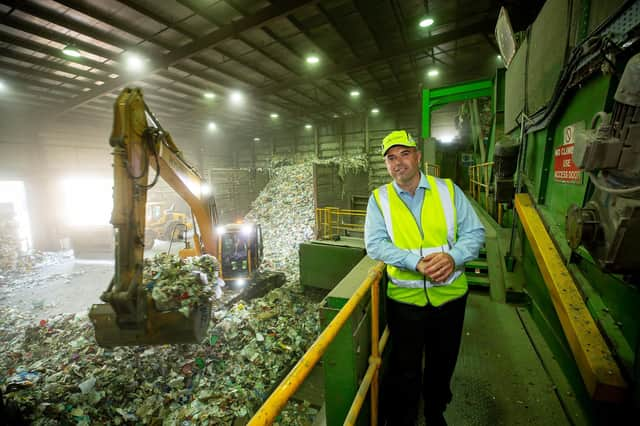Re-Gen Waste opinion: Mallusk waste plant efficiency


“Innovation is the lifeblood of any successful, sustainable economy,” says Joseph Doherty, managing director of Re-Gen Waste, who is convinced the Province can come up with a better, more sustainable, solution.
“That statement is particularly true for Northern Ireland, where a legacy of innovation has allowed us, as a relative minnow on the world stage, to stand apart in a crowded marketplace with inventions such as the ejector seat, the portable defibrillator and the pneumatic tyre,” he says.
“All these life changing inventions were borne out of a very real need to solve a problem, as well as an innovative culture which fostered new ideas.
“That culture is still very much alive in Northern Ireland to this day and innovators are still leading the way in sectors as diverse as advanced manufacturing, cyber security and financial services.
“They are also at the forefront of the waste sector, one which has been transformed in recent years by a raft of innovation which has helped to recycle and reuse more and more and reduce the amount we send to landfill completely.
“The distance the sector has travelled in a short space of time has been phenomenal and, although we’re not there yet, the overriding aim of most in the industry is to recycle every part of household waste.”
What happens to our waste now?
“At present, companies like Re-Gen Waste, which collect household waste from throughout the province before sorting and recycling as much as possible at its Newry plant, are left with only a small fraction of waste which can’t be recycled,” Joseph explains.
“To avoid landfill, it is sent for incineration to highly efficient energy plants in Northern Europe, producing not just electricity, but also heat, which is supplied to homes and businesses via district heating systems.
“We are confident that the innovators in the waste sector in Northern Ireland will soon come up with a way of dealing with this final fraction of waste, given the current environment in our sector which truly rewards innovation.
“It may be a number of months or just a few years, but we know that our industry will soon have the technology to recycle that final portion and complete the virtuous circle.”
Concerns for the future
“But we are increasingly concerned that that innovation could be snuffed out if a proposed £240 million waste incinerator in Mallusk, gets the go-ahead.
“In addition to stifling innovation, it would also put paid to the chances of making meaningful reductions to carbon emissions and leave the province, and ratepayers in the six Council areas in the arc21 region, burdened with an expensive solution.
“Existing waste-to-energy technology, of the type proposed by arc21, requires a high-volume, guaranteed waste stream for at least 25 years to make them economically viable, potentially creating a mandate to prioritise the demands of the facility over the need to recycle.
“Such large-scale facilities curb adaptability for future innovations designed to increase recycling.
Another way forward
“The alternative - local processing and recycling of the type practised by Re-Gen - offers the most sustainable future for Northern Ireland’s household waste and leaves the door open for the adoption of future recycling technology.
“It will allow Northern Ireland’s waste management system to flex and take advantage of future innovations in the sector while also helping the region reach the goal of net zero carbon in a shorter space of time.
“Waste-to-energy plants may be necessary for the very last of unrecyclable waste, but Northern Ireland has access to an abundance of such facilities in the UK and Europe at competitive cost.
“Our approach to treating household waste is constantly evolving to take advantage of new best practices and is by far the most environmentally friendly for Northern Ireland, both now and in the future.
“It leaves the door open for us to adopt the very latest technology, creates and supports jobs across the province, and will play a key role in helping this region reach net zero carbon by 2050.
“The wrong policy and technology choices in Northern Ireland now could impact for decades and risk impeding the imperative to reach net zero carbon in the future.”
For more information about Re-Gen visit https://regenwaste.com/